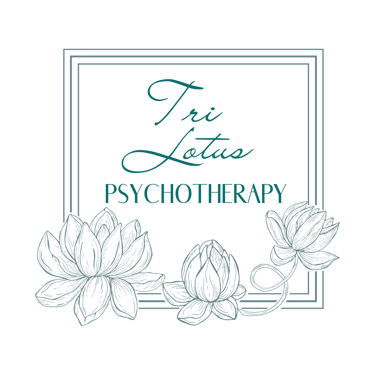NOW ACCEPTING NEW CLIENTS: In-Person in Calgary & Online across Alberta Book a Free 20min Introductory Call! CLIENT LOGIN
Generational Healing: Why You Don’t Have to Parent the Way You Were Raised
If parenting brings up fear, guilt, or old wounds, you’re not alone. This post breaks down what generational healing is, why you don’t have to repeat the patterns you grew up with, and gentle steps to create a healthier path forward.
PARENTING
Tri Lotus Psychotherapy Inc.
11/17/20254 min read


Generational Healing: Why You Don’t Have to Parent the Way You Were Raised
Parenting differently than the way you were raised can feel incredibly hard. Even when you want to break old patterns, doing things a new way can bring up fear, guilt, confusion, and overwhelming emotions. Many parents find themselves saying:
“I can never relax because I always feel on edge.”
“I feel out of control and panic when my child cries.”
“I don’t know how to handle their temper tantrums, I feel so helpless.”
“My mood is all over the place. One minute I’m okay, and the next I’m irritable or crying again.”
“My anger goes from 0 to 100.”
“I don’t even know who I am when I’m not trying to please everyone.”
“I feel guilty for wanting something different than my family.”
“I know my parents did their best, but I’m still hurting.”
“I’m scared I’ll end up just like them.”
“I’m so tired of being the strong one.”
“I thought I healed… until I went home for the holidays.”
If any of these resonate with you, you’re not alone. Many parents begin this journey feeling confused about why they react the way they do, or why parenting brings up so many old wounds.
This is where generational healing begins.
Understanding Generational Patterns
Most families pass down more than recipes or traditions; they pass down emotional patterns, coping strategies, and unspoken rules. These patterns are rarely intentional, but they’re powerful.
Some common generational patterns include:
Emotional repression (“Don’t cry,” “Just be strong”).
Lack of affection.
Harsh discipline.
Perfectionism and achievement-based worth.
Shame-based parenting.
Shame-based parenting, in particular, leaves a lasting imprint. When children grow up hearing subtle (or overt) messages that they’re “too much,” “not enough,” or “a disappointment,” they often enter adulthood with chronic self-doubt, people-pleasing tendencies, and difficulty knowing their own needs.
Over time, the nervous system learns that these patterns are normal, even if they were painful. So when you become a parent yourself, your body often reacts out of familiarity, not intention.
What Is Generational Trauma?
Generational trauma refers to psychological and emotional wounds that are passed down through families. If your parents grew up with chaos, abuse, neglect, or emotional distance, they may have raised you from their own unhealed place, not because they didn’t love you, but because they didn’t have the support or tools to do differently.
When you ask What is generational healing? It is the process of noticing these inherited patterns, healing the unresolved trauma, and choosing a healthier way forward for yourself and your children.
Generational healing is not about blaming parents. It’s about understanding that they were doing the best they could with what they had and then giving yourself permission to do better.
Recognizing Your Triggers
Old wounds tend to resurface in parenting moments. You may notice:
Feeling triggered when your child cries.
Needing to control the situation to feel safe.
Feeling resentful of your child’s needs because no one met yours.
Feeling helpless, panicked, or overwhelmed when your child has big emotions.
These reactions are not signs of being a “bad parent.” They are signs that your nervous system is responding to old, unresolved pain.
Reparenting Yourself
Reparenting means giving yourself the nurturing, safety, and compassion you didn’t receive as a child. It’s learning how to become the parent you needed so you can show up differently for your own children.
This might include:
Self-soothing techniques for when you feel activated.
Using grounding or mindfulness practices to settle your nervous system.
Inner child work (speaking gently to the younger part of you who feels scared or overwhelmed).
Affirmations that challenge old shame-based beliefs:
“I am allowed to rest.”
“I don’t have to be strong all the time.”
“I can choose differently.”
Many people also benefit from trauma therapy, especially modalities created to heal generational wounds. EMDR therapy Calgary is one effective option that helps reprocess painful memories and reduce emotional reactivity. Working with a Calgary therapist who understands generational trauma can provide the support and tools needed to heal deeply rooted patterns.
Practical Steps for Change
Changing the patterns you grew up with happens slowly and intentionally. Here are small, but powerful steps:
Pause before reacting.
Regulate yourself before disciplining your child.
Reflect on your “why.”
What values do you want to guide your parenting? For example, compassion, safety, connection, patience?
Journal and build awareness.
Notice when old patterns arise, and what your inner child might be needing.
Practice mindfulness.
Short grounding practices help interrupt automatic reactions.
Set boundaries with family when necessary.
Healing often requires space from the people who shaped you.
Seek support.
Therapy Calgary, conscious parenting resources, parent support groups, and generational healing techniques can all make this journey easier.
A Final Encouragement
You don’t have to be perfect to break a cycle.
Healing happens in small, everyday moments. Pausing when you would have yelled, softening when you would have shut down, choosing connection when shame tells you to pull away.
Every time you show your child patience, compassion, or emotional safety, you are rewriting the story.
Gentle reminder:
You’re giving your child what you once needed.
And that is powerful generational healing.
At Tri Lotus Psychotherapy, we have therapists that help clients heal from generational trauma. Our therapists, offer a complimentary 20 minute introductory call, where you can ask any questions you may have, see how they can help, and ensure they are a good fit for you. Book directly below.
Find a Therapist




Supports Couples, Teens (12+), Adults
Supports Couples, Teens (9+), Adults, Families
Supports Adults and Teens (16+)
Supports Adults and Couples
Let's Connect
Please fill out the form to request an initial appointment
or complimentary introductory call
Contact
hello@trilotustherapy.com
Clinic Hours
Monday: 5:00pm to 8:00pm
Tuesday: 1:00pm to 8:00pm
Wednesday: 8:00am to 8:00pm
Thursday: 8:00am to 8:00pm
Friday: 11:30am to 4:30pm
Saturday: 9:00am to 3:00pm
Copyright © 2025 by Tri Lotus Psychotherapy - All Rights Reserved


Land Acknowledgment: I gratefully acknowledge and honour that where I live, work and play is within the traditional territories of the people of the Treaty 7 region in Southern Alberta, which includes the Blackfoot Confederacy (comprising the Siksika, Piikani, and Kainai First Nations) as well as the Tsuut’ina First Nation, and the Stoney Nakoda (including the Chiniki, Bearspaw, and Wesley First Nations); and Métis Nation of Alberta, Region 3. The traditional Blackfoot name of this place is “Mohkinstsis”, which is also known now as Calgary.

